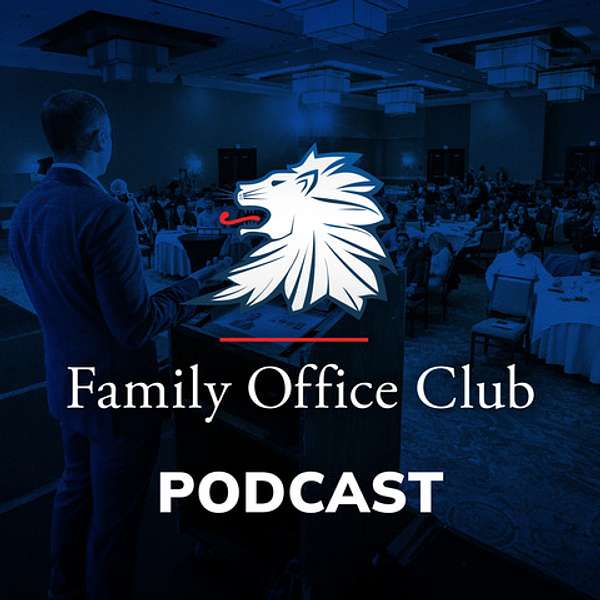
Family Office Podcast: Billionaire & Centimillionaire Interviews & Investor Club Insights
The Family Office Podcast released 3-7 episodes a week of interview mandate interviews, private investor strategies, innovative investment structures, and wealth management related insights.
We use this podcast to interview billionaires, centimillionaires, investors, and family offices and help founders, entrepreneurs and investors scale their platforms and invest more effectively.If you are looking to grow your business, get sharper at investing and scale you are in the right place.
Our program provides investors with insights on setting up their own single family office, virtual family office, or selection of a multi-family office to help them manage their wealth.
We cover private equity, real estate, income investments, commercial real estate, hard money lending, private loans, and innovative structures such as performance-fee only and Co-GP investment opportunities.
The Family Office Club has over 7,500 registered investors and our online investor community has over 700 recorded investor mandates, with a normal 15 live events hosted a year with 6,500 participants at those live events.
To learn more please visit http://FamilyOffices.com or text (305) 333-1155
Family Office Podcast: Billionaire & Centimillionaire Interviews & Investor Club Insights
The “Buy-Cheap and Buy-Even-Cheaper” Strategy in Venture Capital
An expert on Venture Capital shares why traditional VC math doesn’t add up and how his team flips the model. Instead of paying inflated valuations and hoping for one breakout, they buy in early at favorable terms, use growth-hacking to add measurable value, and structure warrants for a second bite at a lower price.
Key Takeaways:
• Challenge the VC Norm – Paying 10× in hopes of 100× rarely works.
• Early Entry Advantage – Secure low entry valuations before hype inflates prices.
• Value Creation via Growth Hacking – Actively improve portfolio performance post-investment.
• Use Warrants Strategically – Lock in the right to invest again at your target price.
• Portfolio Mindset – Don’t rely on just one “winner” to carry the fund.
📌 About Family Office Club
We host 30+ investor events annually, connecting family offices, private investors, and dealmakers worldwide. Learn more: https://familyoffices.com/
Quick follow -up question on your Irish Buy Cheap and Buy Even Cheaper strategy. I'm
actually half Irish, half Asian, so also buy into that philosophy. I'm sorry about
that. Can you speak to why that works for you and any effective techniques to be
able to buy even cheaper? Because venture capital is fundamentally broken. The idea
that you would pay 10 times the value for a company in the hope that it would be
worth 100 times in the future is a crazy philosophy and it doesn't work for the
vast majority. If we look at the returns of most venture capitalists, it's very,
very low. And so one of the venture capitalists I really liked was the idea of Y
Combinator. I loved the fact that they came in really early, but then they built a
huge brand around why people should use them. So people will just reduce their price
from 20 million to 1 .4 million. And for some godforsaken reason other VCs will then
come in afterwards and pay 20 million again. And so I kind of like that model. It
made no sense to me why people did it, but I liked it. And then we decided since
we have great growth hacking teams, then we'll just add value in the form of growth
hacking and we'll do a deal at the beginning for a price that we want to get
three quarters way through. So we have warrants, which is another philosophy I really
like as well. And I just think you have to, it's just to be reliant on one
company winning in a portfolio of 20 kids is like, is like an Irish family. It's
like having, you know, 20 kids and just hoping one of them breaks through. Got it.
Thank you.